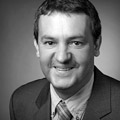Conservation Biology and Applied Ecology
Aspects of Conservation and Ecology in Terrestrial Ecosystems. Further topics include biodiversity, ecosystem services, agroecology, macroecology, chemical ecology, soil ecology, effects of management and elevational gradients on ecosystems.
PROGRAMME OUTLINES
Programme Profile: Conservation Biology and Applied Ecology
The programme combines training/education/classes in basic and applied animal ecology, conservation biology, tropical biology, and global change biology. It is target of the program to introduce students to fundamental ecological and evolutionary principles, to teach important topics in applied and conservation ecology and provide training in methods covering remote sensing, animal census techniques, statistical data evaluation and development of conservation strategies and programs.
The program’s topics cover a large variety of ecological and conservation related courses, e.g. on biodiversity research, climate change biology, animal-plant interactions, ecological sustainability, evolutionary and behavioural ecology, ecological theory and modelling, macroecology, biological conservation, agroecology, forest ecology, chemical ecology, soil ecology, ecology in alpine or tropical environments, ecosystem services like pollination and biocontrol, insect ecology, biology of social insects including honey bees and ants. Courses in other disciplines of biology are possible like socio-biology, neurogenetics and behaviour as well as courses on remote sensing in the department of geography, courses in the Centre of Computational and Theoretical biology (CCTB) or in the Centre of Artificial Intelligence and Data Sciences (CAIDAS). Statistics and scientific writing are additional skills, which will be trained.
The two selected topics are composed of two theory modules as well as a practical course unit each. Further research training is provided in selected fields of interest. Students are actively involved in ongoing research projects and learn to independently plan and perform both theoretical, experimental and observational work and finally, to summarize and discuss results obtained in their master thesis.
Programme Schedule
- S1 TOPIC 1 (2 theory modules plus practical course)
- S2 TOPIC 2 (2 theory modules plus practical course)
- S3 Advanced experimental training (F2, 15CP) + additional special courses (15 CP)
- S4 Thesis + final colloquium
Curriculum
For detailed informations on the following modules listed are available in the Online Course Book, Master Biosciences, Module Group 4 (WueStudy)
Year 1 (Winter-Semester)
- Neurobiology, Behavioural Physiology and Animal Ecology
- Conservation Biology
- Animal Ecology and Tropical Biology
- Start with Animal Ecology and Tropical Biology F1 (Practical Course) OR Conservation Biology F1 continue in SS (Practical Course)
- Additional Courses
Year 1 (Summer-Semester)
- Animal Ecology and Tropical Biology 2
- Animal Ecology and Tropical Biology F1 (Practical Course)
- Conservation Biology F1 (Practical Course)
- Additional Courses
Year 2
- Animal Ecology and Tropical Biology F2 or Conservation Biology F2
- Additional Courses
- Thesis
- Thesis Colloquium
STUDY PROGRAMME
Modules - Theory
Animal Ecology and Tropical Biology
In the lecture an overview is given of theoretical basics and current issues in animal ecology. Thematic focal points are biodiversity and ecosystem functions, multitrophic interactions and food webs, evolutionary ecology, chemical ecology, tropical ecology, agroecology and global change. In the seminar current scientific publications on the above topics will be presented and discussed.
Animal Ecology and Tropical Biology 2
The lecture provides insights into basic principles in ecology with particular focus on the biology of tropical habitats including tropical biocenosis. Special attention is given to the global importance of tropical systems (“ecosystem goods” and “ecosystem services”) as well as to biological specialties and aspects of particular adaption in these highly diverse biomes. In the seminar the students learn to perform problem based scientific literature research, to present recent publications and to critically discuss these new findings.
Conservation Biology
The lecture focuses on the essentials in conservation biology and the drivers and consequences of global change for organisms and ecosystems. Nature-conservation relevant topics from theory to application will be the main focus.
Neurobiology, Behavioural Physiology and Animal Ecology - Insects in a changing environment (Lecture series)
Changing environments impact all organisms on earth. The environment affects neurobiology, behaviour, and navigation. Animals make use of endogenous clocks to predict and adapt to daily or seasonal changes of the environment. Environmental changes, which are often man-made, like climate change, affect the individual behaviour, biotic interactions, the distribution of species, species communities, and chemical and evolutionary adaptations.
The lecture series gives a introduction to the effects of changing environments on different aspects in biology and the underlying neuronal, physiological, behavioural, and ecological mechanisms. Animal adaptations which have evolved to cope with these changes as well as extinction risks of species will be discussed.
Modules – Practical Courses
Animal Ecology and Tropical Biology F1
This module consists of several practical courses (minimum three courses lasting together five or six weeks (minimum CoH = 13) and a seminar series in the summer semester. The practical courses can be chosen from the following electives:
- Agroecology
- Chemical Ecology
- Ecology in Alpine Environments
- Ecology of Honey Bees and Wild Bees
- Forest Ecology
- Macroecology
- Modelling in Ecology
- Remote Sensing in Ecology
- Tropical Ecology
In the seminar, topics of the exercised modules will be presented and discussed.
Conservation Biology F1
- This module consists of several practical courses (minimum three courses lasting together five or six weeks (minimum CoH = 13). To fulfil the seminar criteria, either Biodiversity, Ecosystem Services and Conservation (in WS) or Global Change Biology (in SS) must be chosen.
The practical courses can be chosen from the following electives, but either Ecosystem Services and Conservation (in WS) or Global Change Biology (in SS) are compulsary:
- Agroecology
- Biodiversity, Ecosystem Services and Conservation
- Ecology in Alpine Environments
- Ecology of Honey Bees and Wild Bees
- Forest Ecology
- Global Change Biology
- Remote Sensing in Ecology
- Soil Ecology
- Tropical Ecology
Animal Ecology and Tropical Biology F2
In F2 internship, students work on one scientific question about Animal Ecology and Tropical Biology as independently as possible. It includes the development of hypotheses, preparation of a work plan, and implementation of data collection. These might contain sampling campaigns or experiments in common garden, green house, laboratory or real-world ecosystems, and must contain statistical analysis of the data. The results are presented in a protocol, which resembles the form and content of a short scientific paper with introduction, material and methods, results, and discussion sections. A regular attendance in department seminars is expected. In the three Ecology departments, there are many possibilities to conduct an F2 internship in Germany, Europe or in the tropics. They can be carried out in an ongoing research project of the institute or in cooperation with other institutions. Information about the F2 internships as well as current topics can be found on the webpages of the departments or black boards or can be requested directly from the working groups.
Conservation Biology F2
In F2 internship, students work on one scientific question about Conservation Biology as independently as possible. It includes the development of hypotheses, preparation of a work plan, and implementation of data collection. These might contain sampling campaigns or experiments in common garden, green house, laboratory or real-world ecosystems, and must contain statistical analysis of the data. The results are presented in a protocol, which resembles the form and content of a short scientific paper with introduction, material and methods, results, and discussion sections. A regular attendance in department seminars is expected. In the three Ecology departments, there are many possibilities to conduct an F2 internship in Germany, Europe or in the tropics. They can be carried out in an ongoing research project of the institute or in cooperation with other institutions. Information about the F2 internships as well as current topics can be found on the webpages of the departments or black boards or can be requested directly from the working groups.
Additional Courses
Subtopic Additional Achievements
Agroecology
In this practical course, students get to know typical animal communities in agricultural systems, from ground-dwelling and flying invertebrates to mammals and birds and learn about their function in the ecosystem. We will experimentally assess, how these communities are affected by agricultural management, and which role agri-environmental measures play in protecting animals and the ecosystem services they provide (e.g. pollination, pest control, decomposition). Includes field trips to different farms within the Lower Franconian region.
Biodiversity, Ecosystem Services and Conservation
This practical course will be held as a block-course in which students will use publicly available (spatial) data to develop and evaluate scenarios of landscape development or management. A selection of methods relevant for planning in conservation contexts such as monitoring tools, landscape mapping, natural capital valuation and others will be introduced. The students will apply the appropriate tools in the context of a case study, analyse the resulting data and present discuss the results among their peers.
Chemical Ecology
The students will be introduced in this practical course into the chemical interaction of organisms with their biotic and abiotic environment with a focus on evolutionary and ecological research questions. You will learn adequate biological methods to study these interactions as well as analytical methods to characterize the substances used by the organisms. The aim of the course is to lead you to up-to-date topics in the field of chemical ecology.
Ecology of Honey Bees and Wild Bees
This practical course introduces students to the life of honeybees and wild bees; principles and techniques of beekeeping (colony management, breeding, diseases); resource use of honey bees and wild bees (bee dances, flower visiting, pollen analysis, foraging behavior, nesting aid); Taxonomy of wild bees, opponent of bees, wild bees in different habitats (excursion), honey bee excursion, e.g. visiting of the bee centre in Veitshöchheim.
Ecology in Alpine Environments
This practical block-course is mainly conducted in the German Alps and include field trips to the different ecosystems along elevational gradients, encompassing colline to subnival elevations. After exploring the habitat characteristics in different elevational belts, students will develop their own small research project focusing on the patterns and drivers of species diversity, species traits, animal-plant-interactions and/or animal-related ecosystem functions along climate- and land-use gradients. The course might take place in the region of the national park Berchtesgaden or the region around Zugspitze (the highest German mountain).
Forest Ecology
Winter semester: This practical course will be held as a block-course at the Jungendwaldheim, Wessely Haus, Bavarian Forest National Park. Contents include the determination and detection of mammals and birds in mixed mountainous forests. Also, we will conduct experimetall fieldwork an related data analysis methods.
Summer semester: This practical course will be held as a block-course at the Field Station Fabrikschleichach. Contents include the determination and detection of Arthropods in forests dominated by beeches in the Steigerwald. Focus are conservation relevant species and species relevant for phytosanitary control measures. Also, we will conduct experimental field- and laboratory work.
Global Change Ecology
This practical course provides students with an overview of the impacts of global change on biological systems. Using literature, media and data analyses as well as field trips and modelling, the significance of various anthropogenic influences (e.g. climate and land use change, pollution, invasive species) on species and ecosystems is examined. In interactive and interdisciplinary formats (e.g. expert discussions, role plays), the students will deepen what has been learned and options for action will be developed and discussed.
Macroecology
This practical course provides students with an introduction to macroecology (which deals with patterns and processes of biological diversity at large spatial and temporal scales) and, in particular, practical knowledge and skills of macroecological research. Using prepared (bio)geographic and ecological data, students will analyse large-scale biodiversity patterns, the influence of abiotic factors on species distributions and species richness, and potential conservation applications. In individual projects students will apply the learned methodological approaches.
Modelling in Ecology
On the basis of exemplary text-book models in ecology and evolution, students will be introduced to different simulation techniques and modelling methods. In the second part of the course students will implement their own simulation progress to address demographical or evolutionary questions of interest.
Remote Sensing in Ecology
Winter semester: In this practical course students will learn the basics of remote sensing and their application in ecology and conservation.
Summer semester: In this practical course students will learn how drone flights are used for remote sensing in ecology and conservation.
Soil Ecology
This practical course is a one-week block course. First, students get an introduction to soil biodiversity and soil ecology under global change. Afterwards, they learn how to assess and sample soil fauna communities (mesofauna, macrofauna, earthworms) in local habitats. Animals are sampled with adequate sampling techniques, extracted, and afterwards identified to the highest resolution possible. Finally, different habitats are compared based on their soil-fauna communities and the results will be contextualized among the existing literature.
Tropical Ecology
This practical course usually takes place in East Africa, often Kenia and contains excursions to African ecosystems like coral reefs and savanna national parks. It is only offered every second year and students have to cover essential part of costs themselves. In the tropical ecosystem, small projects with ecological or nature conservation related issues will be performed. Here the students should learn about the steps of experiment design, implementation, data analysis, up to data presentation. In the evening seminar, recent publications are presented in the field of Tropical Ecology and will be discussed.
Ecology and Taxonomy of Insects (in German only)
This practical course is due to several constrains in German. Identification and classification of the characteristics of different groups of arthropods, especially insects. Knowledge of special form is provided. Observation and recording of arthropods in habitats. Experimental laboratory and field work on ecological or behavior biological characteristics of the respective groups of arthropods. In addition, also compilation of species richness and niche differentiation. The aim is to link the phylogenetic and morphological characteristics of arthropods with their ecological functions.
Programing using Python
Introduction into the programming language Python.
Experimental Sociobiology B
The lectures highlight the diversity and the evolution of social behavior, but also focus on the physiological, neurobiological and behavioural mechanisms underlying the organization of social groups. In a follow-up seminar session students will deepen their knowledge by presenting and discussing actual papers related to the topic of the lecture.
Neurogenetics and Behaviour B
This theory module focusses on the understanding how the brain controls behavior is at the heart of neuroscience. Both the brain and behavior can be overwhelmingly complex and plastic, but neurogenetic methods are powerful tools for unraveling the principles of how the brain controls behavior. This lecture will provide an overview of current and important topics in behavioral neuroscience (e.g., sleep, appetite and feeding control, social behavior, mating, mirror neurons, molecular mechanisms of auditory behavior, neurogenetic techniques), with an emphasis on the genetic model system Drosophila melanogaster, but the content will also be illustrated with examples from other animal groups of insects and mammals.
Endogenous clocks B
This theory module gives an introduction into endogenous clocks of unicellular organisms, fungi, plants and animals, with focus on the neuronal organisation of the clock in the brain of mammals and insects. The biological functions of endogenous clocks and the underlying mechanisms will be discussed on the molecular, cellular and organismic level. How clocks adjust to a 24h day with variable photoperiods will be explained. Applied aspects regarding e.g. shift work or jetlag will also be included.
Presentation of Scientific Data
The students write a scientific mini review including correct citation and learn various options to present scientific data including manuscript writing followed by an oral presentation (15 min).The manuscript is based on original papers as well as on reviews and follows the instructions of a scientific journal of choice, which may be found at the home page under e.g. “Instructions to Authors”. Both length of chapters and structure of the article should be based on the style of the selected journal.Attendance at 20 or more scientific talks (e.g. defense of doctoral thesis, presentation of research projects, retreats ) including presentation by guest speakers.
Quality Assurance, Good Practice, Biosafety and Biosecurity
Good Practice in the Biosciences, quality assurance approaches and quality culture. Structure, idea and basic principles of quality management approaches, DIN EN ISO 9001, regulatory documents and framework in the biosciences including biotechnology, biosafety, biosecurity, risk assessment.
Additional Courses & Final Thesis
FINAL THESIS
Thesis
C: A defined scientific question is addressed by adequate techniques. Students plan and perform experiments to solve problems or summarize and interpret existing data. The students have to develop a research plan and apply advanced and novel techniques in the context of a given research project according to good scientific practice. The results are summarized in a written thesis. The project lasts for six month.
LO: Students are qualified to scientifically work on a topic on their own. They are competent to discuss the current research in the field. They are competent to work according to good practice and to document, interpret and to discuss their results. They are competent to discuss and to defend their data in the scientific community.
Thesis Defense / Oral examination Biology
C: Verification of thesis content through oral examination. Total length should not exceed 45 min. (30 min. plus 15 min. of questions pertaining to the thesis, as well as related subjects)
LO: The students are able to present the results of their thesis work to a public audience in a limited time and they are able to critically discuss questions and concerns.
Contact
Jochen Krauss











